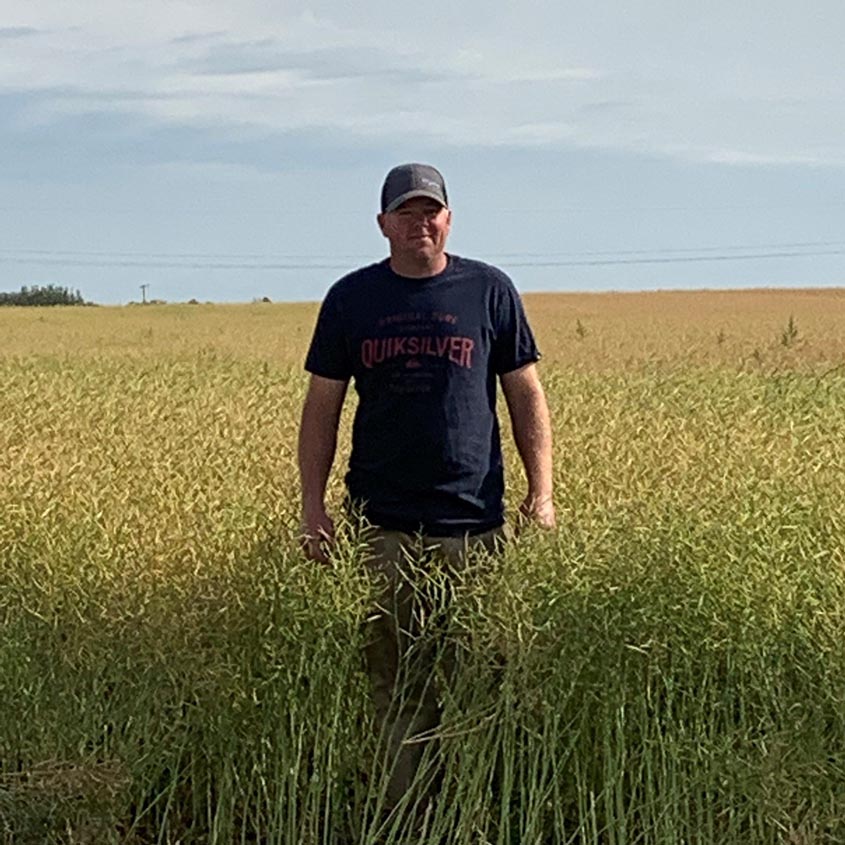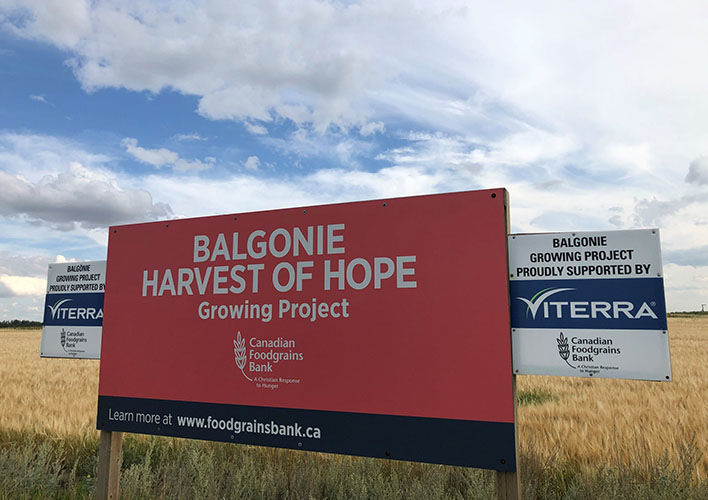The Stiefel family of Balgonie, Saskatchewan has volunteered to farm land donated by Viterra to raise money for ending global hunger through the Foodgrains Bank. (Photo: Submitted)
As a fourth-generation farmer, Mike Stiefel is no stranger to hard work.
Mike and his family own and operate a mixed grain and cattle operation, Balgonie Holsteins, in Balgonie, Saskatchewan, running 400 head of cattle and farming 2,200 acres of land.
When the Stiefel family was approached by Canadian Foodgrains Bank regional representative, Rick Block, to undertake a growing project on land donated by Viterra, they couldn’t pass up the opportunity. “We’re in close proximity to the Viterra terminal in Balgonie and we wanted to see the project continue, so it just made sense,” said Mike.

“We feel very blessed with what we’ve been given in life and we want to share that with those in need,” says Mike Stiefel, who farms land donated by Viterra to raise money for ending global hunger. (Photo: Submitted)
The Balgonie Harvest of Hope Growing Project is one of six similar projects taking place on land surrounding Viterra terminals in Saskatchewan and Alberta. “Growing projects provide a tangible way for individuals to apply their farming skills, knowledge, and resources to support those who are facing hunger,” said Rick.
All proceeds from the 40 acres of barley grown by the Stiefel family will be donated and used by the Foodgrains Bank to help families facing hunger overseas. “We feel very blessed with what we’ve been given in life and we want to share that with those in need,” added Mike.
Seeing these projects in communities across the prairies is a good reminder that there’s people out there that are hungry, and we need to do what we can to help.
Funds donated to the Foodgrains Bank will help people like Aida, a Syrian refugee living in Lebanon with her husband, mother, daughter and three grandchildren. Adia and her daughter, Hamila, are only able to find work during the summer months, which provides barely enough money for rent, much less food for their family. The Foodgrains Bank and its members have supported Aida’s family with monthly food packages that help them survive.
“Seeing these projects in communities across the prairies is a good reminder that there’s people out there that are hungry, and we need to do what we can to help,” said Mike.
Growing projects don’t just impact families on the other side of the world, they also have an impact here at home. “Growing projects have a positive effect on communities in Saskatchewan because they connect us to the bigger world,” said Rick. “Growing projects rely on a spirit of cooperation and they are connected to global issues, which can help foster a greater sense of meaning.”
According to Rick, the Foodgrains Bank partnership with Viterra is a natural fit.
“Viterra’s decision to make land available for growing projects is an important contribution to fighting hunger,” said Rick. “In the current agricultural landscape, land for growing projects is our most scarce resource. Families on the other side of the world feed and support themselves on as little as one acre of land every year, so it’s important to realize that even small parcels of land can have large impacts.”
Mike and his family hope to see the Balgonie Harvest of Hope project grow in the years to come, to continue providing life and support to those in need.
– Haylie Huber, Corporate Affairs Co-op Student, Viterra



